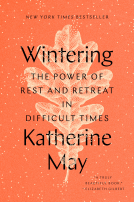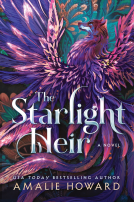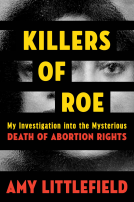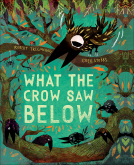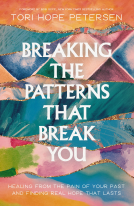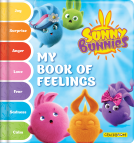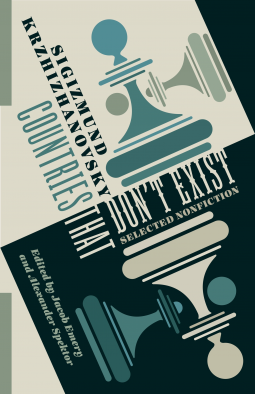
Countries That Don’t Exist
Selected Nonfiction
by Sigizmund Krzhizhanovsky
This title was previously available on NetGalley and is now archived.
Send NetGalley books directly to your Kindle or Kindle app
1
To read on a Kindle or Kindle app, please add kindle@netgalley.com as an approved email address to receive files in your Amazon account. Click here for step-by-step instructions.
2
Also find your Kindle email address within your Amazon account, and enter it here.
Pub Date Feb 08 2022 | Archive Date May 18 2022
Talking about this book? Use #CountriesThatDontExist #NetGalley. More hashtag tips!
Description
Countries That Don’t Exist showcases a selection of Krzhizhanovsky’s exceptional nonfiction, which spans a dizzying range of genres and voices. Playful fantasies dwelling in the borderlands between essay and fable, metaphysical conversations and probing literary criticism, philosophical essays and wartime memoirs—in all these modes Krzhizhanovsky’s writing bristles with idiosyncratic erudition and a starkly original vision of literary creation. Krzhizhanovsky comes across as a strange voice from another past, at once utterly novel yet unmistakably belonging to the high modernist 1920s and 1930s. Taken together, these works present to the English-speaking world a fresh aspect of a newly canonized author.
Countries That Don’t Exist also features critical commentary that places these texts in the context of Krzhizhanovsky’s other writings and illuminates their relationship to the philosophical and aesthetic ferment of Russian and European modernism.
Advance Praise
"Krzhizhanovsky is one of the greatest Russian writers of the last century."
—Robert Chandler, Financial Times
"Krzhizhanovsky is often compared to Borges, Swift, Poe, Gogol, Kafka, and Beckett, yet his fiction relies on its own special mixture of heresy and logic."
—Natasha Randall, Bookforum
Available Editions
| EDITION | Other Format |
| ISBN | 9780231202374 |
| PRICE | $19.95 (USD) |
Average rating from 6 members
Featured Reviews
 John L, Reviewer
John L, Reviewer
To make it obvious, I am certainly not an expert in this kind of literature, and if you come to this book as one you will be doing so with academic mind alert to what I, a humbler typical-commuter-reader, could not hope to fathom. And I don't think many on the stereotypical bus would gain much from the first few essays here (talk of the "gnoseological meaning of mysticism" included) - but unfortunately they weren't the only pieces I felt the urge to ditch. I did read what came next – a piece about Moscow's commercial snapshot-takers, and essays about book title pages and fantastical fiction locations – if I wasn't always convinced I knew why I was reading them. A short work discussing Poe, a longer one on Shaw – these were perfectly acceptable. A dialogue-structured piece comparing dramas with chess matches felt like it would need too much re-reading. In contrast you can clearly see the 'postcards' from wartime Russia as being almost journalistic in fashion – which is what they were designed to be.
What closes this out are two pitches, or summaries-in-note-form, of books the author wished to write (and oh the irony that one is about books other people wished to write), and a selection of quips, newly-thought-up adages and story ideas from his notebooks. All in all this is a pretty well done volume, even if it never convinced me of the value of keeping his name in the public eye. Sorry, keeping? He was never there. One of the many academic heads behind this translation effort declare, utterly incorrectly, that J Fenimore Cooper has been forgotten; our man lays the same charge at the feet of Wedekind. Yet it was our author who was barely ever published (mostly through politics and censorship), and needed decades to get a reappraisal.
And even though I agree with the creators of this that the smaller, off-kilter pieces and not the key novels people 'MUST' read are generally a much-ignored way into knowing and understanding an author, I didn't really find this as utterly enjoyable as I expected. Yes the man can write – he certainly gets a lot more than most would out of watching windows get taped up for the Great Patriotic War – but... Despite the lack of enough biographical detail (a wife getting mentioned on about the last page of editorialising), this is a very strong title and will suit its audience to a T. But the contents proved to me that if you doubt you are that audience, then you most definitely are not.
 Reviewer 762493
Reviewer 762493
Walking down the dark streets of my city, I wondered why I've been reading Krzhizhanovsky at all. Obscure, occasionally metaphysical and hard to penetrate, Krzhizhanovsky isn't everyone's cup of tea, at least when it comes to his nonfiction. I'm not sure he's mine, either.
But, of course: curiosity. What does an author living in Moscow at the beginning of the 20th century sound like, when he doesn't have the "correct" politics and views and thus most of his work could not be published under communism?
Krzhizhanovsky was a witty, erudite writer; a speaker of several languages, he enjoyed a good pun. He could be philosophical and abstract, as well as down to earth and observant, and his style varied a lot between waxing poetic about science versus theater, to the journalistic snapshots of Moscow (during the war, and during times of peace). He was passionate about theater and not at all shy in praising the value of imagination. This makes him, if not always enjoyable to read, at least occasionally interesting.
Unfortunately, some parts - such as a discussion of life and literature viewed through the lens of chess - weren't exactly accessible. On the other hand, I found the descriptions of Moscow and an essay on the art of the title through the ages to be quite enjoyable. The notes for a never-realized project about never-realized project and for a similarly unwritten history of hyperbole, I felt, were curiosities more than anything else.
It isn't a volume I'd recommend in general, but it promises to be very useful to those interested in early 20th century Russian literature, or in Krzhizhanovsky in particular, while the short introductions for each chapter are quite helpful (even if a bit confusing in one case when Fenimoore Cooper is described as a forgotten writer - as he was assigned reading in one of my literature classes as an undergrad, I initially thought there was another writer of the same name; it turns out, no, it was THE Fenimore Cooper. Perhaps he's forgotten in Russia, I don't know).
I received an electronic ARC via NetGalley.
I should lead this review by saying that Krzhizhanovsky's fiction ranks him among my favorite authors, and since "discovering" his stories as an undergrad (by which I just mean that I encountered one of his short stories in translation in an anthology in the university library, and liked it enough to seek out more) I've found the story of how so little of his writing was ever published in his lifetime fascinating. This volume, however, is my first exposure to his nonfiction.
As with any collection, I found certain works in it resonated with me more strongly than others. They're on the whole very thought-provoking selections, and the translations are good (and include useful notes that really are helpful). Unlike with many authors, I'm not sure that the translator being "invisible" would be a good thing here--information is included on why certain choices were made in translation, and it works beautifully for an author for whom the words themselves often carry such importance.
I am uncertain how much appeal this book has to someone who isn't at least somewhat familiar with Krzhizhanovsky's fiction or plays, though I think some of the selections in it would be interesting regardless--bits and pieces I shared with friends seemed to be appreciated, even where they were not familiar with Krzhizhanovsky and his writing. The fact this is something I can say at all speaks to my enjoyment of this book: I liked it (and like it) well enough, and it sparked enough thought in me, that I wanted to talk about it.
Krzhizhanovsky is a little unique in that I think he's best appreciated with some background not only in Russian literature (the language he primarily wrote in and the literary corpus which he most frequently refers, though the man himself was an ethnic Pole born in Kyiv), but also in British (and to a lesser extent American) literature and, perhaps less likely in a reader of an English translation of his work, a certain amount of Polish literature.
So far I have been extremely pleased with every book I've read in the Russian Library series, and this is absolutely no exception.
Readers who liked this book also liked:
Tori Hope Petersen
Christian, Parenting, Families, Relationships, Self-Help
Carine Laforest;
Children's Fiction
